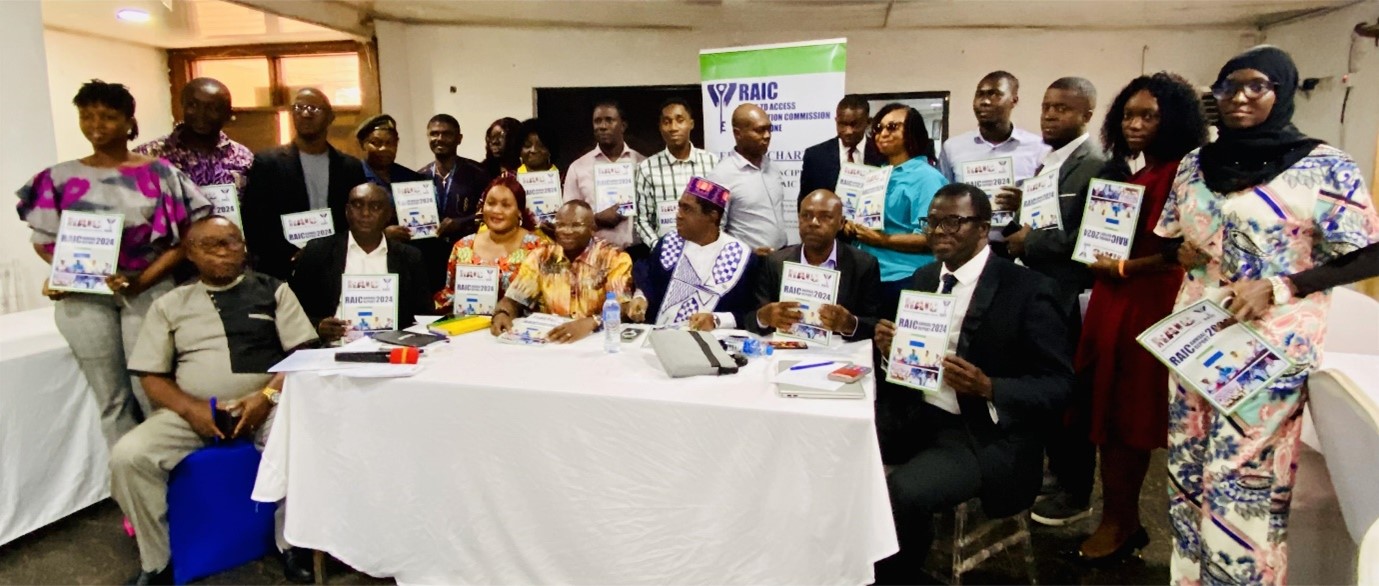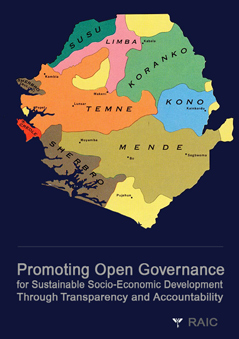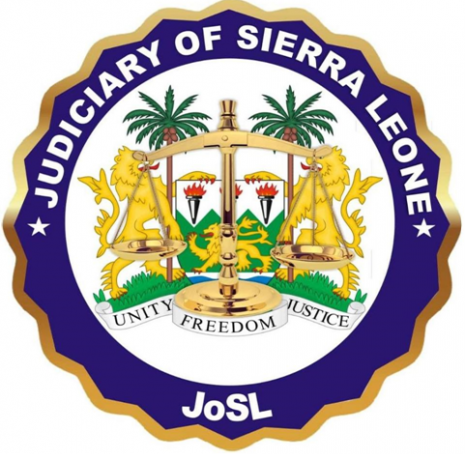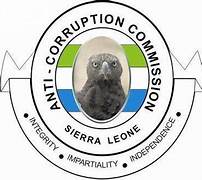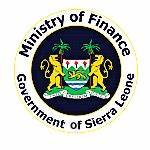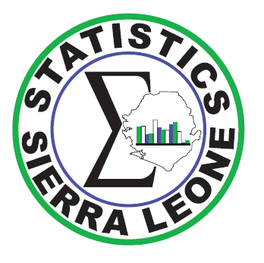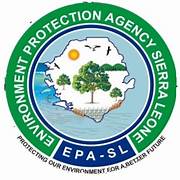In a bid to decentralize the commemoration of the International Day for Universal Access to Information (IDUAI 2025), the regional offices of the Right to Access Information Commission (RAIC) observed this year’s IDUAI in their respective regions, following the observance of the day by the Commission’s National secretariat in Freetown on Thursday 25th September 2025 at the Family Kingdom Resort in Freetown on the theme, “Ensuring Access to Environmental Information in the Digital Age”. This year’s theme highlights how digital technologies and open data platforms can enhance public access to information, foster transparency, and empower citizens and stakeholders to participate meaningfully in environmental governance and sustainable development, focusing on timely, comprehensive, and cross-border access to environmental information in an increasingly digital world. IDUAI is observed annually globally on September 28th to identify challenges, gains and prospects in access to information.
Joining the National Secretariat, RAIC’s Eastern Region Office in Kenema, organized media and stakeholders’ engagements in commemoration of the day. Eastern Region Commissioner, Mr. Ahmed G. Kallon, urged Sierra Leoneans, especially public authorities, to support the commission by complying with the country's right-to-information laws.
Commissioner Ahmed G. Kallon traced the background of IDUAI as far back as 2015, when the day was first proclaimed by UNESCO in 2015, following advocacy by African civil society groups who had long marked September 28th as “Right to Know Day,” a day that was later recognized and adopted by the UN General Assembly in 2019.
He catalogued the raising of awareness on the importance of the right to access information as a fundamental human right, encouraging transparency, accountability, and good governance, empowering citizens to participate in decision-making processes, and supporting efforts toward sustainable development, especially Sustainable Development Goal 16 which is peace, justice, and building strong institutions, the SDG Goal that has access to information as one of its key indicators and targets.
Commissioner Kallon noted that citizens can only meaningfully engage in governance if they have access to accurate timely information, adding that the right to access information serves as an anti-corruption tool in that access to information laws make it harder for corruption and misuse of power to go unchecked.
He added that, in the fight for the protection of human rights, access to information directly links to freedom of expression and press freedom, noting that no country progresses or develops without access to quality information on progress in health, education, and the environment.
He mentioned that some countries use the day to evaluate their Right to Information (RTI) laws and practices, while international organizations such as UNESCO, UNDP, and civil society networks host global conferences on access to information.
The RAIC Eastern Region used the day to raise awareness in the region by engaging major stakeholders and media outlets about citizens’ right to request and receive public information, and to strengthen public authorities’ compliance with the law.
Commissioner Ahmed G. Kallon encouraged the media and civil society to use the information request facilities, both digital and analogue, to request for information from public authorities and to report any obstacles they face in the process.
He appreciated the media, civil society, legal practitioners, and the general citizenry for their roles in earning the country's Right to Access Information Commission the enviable 91% score mark in the most recent worldwide grading of Information Commissions, zooming in on the Sierra Leone Library Board, the Kenema District and City Councils, and the Kailahun District Council for their high-level compliance and cooperation with the RAIC, while calling on all the MDAs to comply with the RAI laws.
Commissioner Kallon cited cases like the Bank of Sierra Leone case with journalist Martha Kargbo, the Sengbeh Marah Case versus ECSL, and the latest NMA case with a journalist as success stories in addition to the RAIC’s digital access to information platforms.
RAIC’s eastern region public information and communications officer, James Fortune, thanked all stakeholders in the region that have been instrumental in the gains of the Commission and encouraged them to continue in that light.
Also, RAIC Northern Region Office in Makeni converged major stakeholders whose mandates resonate with this year’s theme.
Engaging stakeholders, the Northern Region Commissioner of RAIC, Mr. Abu Bakarr Kargbo, said the International Day for Universal Access to Information is a day that recognizes the fundamental right of every individual to access information held by public bodies, adding that, this year's theme highlights the critical importance of timely, comprehensive, and cross-border access to environmental information in an increasingly digital world.
Commissioner Kargbo noted that access to environmental information is crucial for addressing climate change, pollution, biodiversity, and disaster risks while recognizing the relevance of digital technologies and open data platforms in enhancing access to information, fostering transparency, and empowering citizens and stakeholders to participate meaningfully in environmental governance and sustainable development.
He added that the right to access information is a fundamental requirement of democratic governance, facilitating transparency, accountability, and citizen participation in public affairs as limiting access to information can have detrimental effects, including contributing to misinformation and disinformation. “Therefore, it is our collective responsibility to promote and protect this right, ensuring that individuals can access information expeditiously and inexpensively,” he said.
A representative from the Environmental Protection Agency, Mr Jacob A.R. Kargbo, said this year’s IDUAI theme resonates with their institution’s mandate to protect the environment, noting that timely and credible information on the environment is crucial to effectively protect the environment and mitigate the threats posed by environmental challenges.
Other representatives from different public authorities, civil society organizations and the media talked around the theme of this year’s IDUAI.
RAIC’s northern region public information and communication officer, John Kalokoh, thanked participants for their meaningful contributions and urged them to cascade the message to their offices and communities.
In the South, RAIC Southern Region Office hosted key public authorities and other stakeholders in access to information.
In his speech, RAIC’s Southern Region Commissioner, Mr. Biah Y. Idriss, told stakeholders that the importance of access to information has become increasingly crucial for sustainable development, public health and informed decision making.
Speaking on this year’s theme, Commissioner Idriss said the rise of digital technology has transformed how environmental data is disseminated and that open data platforms and mobile applications now allow citizens to access environmental information easily. He encouraged participants to be ambassadors of access to information in their offices and communities.
Mr. Joseph Blackie, a civil Society activist, highlighted the importance of access to environmental information in his line of duty, especially in gathering and disseminating information on human rights and conducting advocacies.
Southern region public information and communications officer, Millicent Brima, thanked stakeholders for gracing the commemoration, while calling on them to put into practice lessons learnt from the engagement.
Reported by:
James Fortune – PICO East +232 78 030511
Milicent Brima – PICO South +232 76 676855
John Kalokoh – PICO North +232 77 994090
Compiled by:
Amara Thoronka
Public Information and Communications Officer
RAIC – National Secretariat
+232 88 283632 / +232 78 231949
This email address is being protected from spambots. You need JavaScript enabled to view it. / This email address is being protected from spambots. You need JavaScript enabled to view it.





